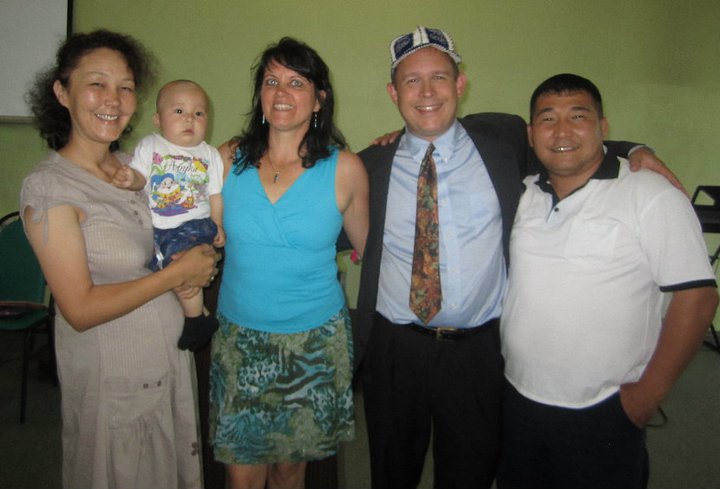Black Lives Matter Through the Lens of Discourse Modalities
Posted 10/28/2016 in Missiology Conversations
Why was the position “Black Lives Matter” (BLM) met with the response “All Lives Matter” (ALM)? I am not going to approach this issue from the paradigm of racial tensions in contemporary US society, but rather using a new approach that I call discourse modalities.
The most effective types of communication engage three discourse modalities: proposition, story, and wisdom. You can see this in Jesus’ teaching about the four soils in Luke 8 or in Paul’s sermon at the Areopagus in Acts 17. We find the combination in such diverse items as folktales, advertisements, and effective speeches. With propositions we argue issues of truth and causality. We hear or read a story and we project ourselves into a world of fascinating characters, gripping action, or intrigue. Wisdom brings us to the point of application and situates us in relationships and roles.
Although effective communication involves employing all three modalities in tandem, societies and subcultures tend to camp out on one modality and consider the other two (if they are even considered) as secondary or derivative. In North America, we favor propositional speech. We view discourse using this modality as reliable, factual, substantial, objective, and scientific. Even with the shift to postmodern approaches, propositions are still the favored and default currency that we exchange in daily discourse or published writings. With the use of propositions in the US we not only share the message, but we rely on the modality as a media with assumed positive associations.

For over a decade I lived, worked, and learned in a considerably different context—Kazakhstan. When I first moved there in 1995, Kazakhstan was a newly independent country eager to establish itself. One of the issues that the new nation confronted was how best to establish or reestablish national identity. How do you develop the character of the citizens of this new nation to ensure the prosperity of the nation and effectiveness on the global stage? The Kazakhstani government determined that a central part of this process would be mandated instruction in Kazakh proverbs from preschool up through secondary school. Kazakh’s rich collection of an estimated 17,000 proverbs would help form the moral compass of the new nation. Knowledge of proverbs was viewed as a means to getting people on the right track in terms of roles, relationships, and values.
For Kazakhs, proverbs as a modality have the positive associations of being time-tested, indigenous, and practical. Kazakh proverbs are viewed as an entrustment from the ancestors. Teachers are expected not only to cover Kazakh proverbs as content, but to also use the proverbs on a daily basis to address situations, attitudes, and issues as they arise in their classes.
So how does all this relate to Black Lives Matter? The movement emerged on Twitter as a grassroots effort to place the treatment of blacks in contemporary US in stark relief.
I will limit myself in this blog to considering what is currently posted on the Black Lives Matter website. The majority of postings on the websites are propositional. This is in keeping with its own history, starting on Twitter, of being focused on factual reports. The website serves as an extension of and the next step in social media for BLM. Those whose deaths inspired the movement are pictured at the top of the home page with their names followed by crosshatches. In the center of the home page are recent tweets. Looking over a number of the other pages, I repeatedly found the following statement: “Black Lives Matter is a unique contribution that goes beyond extrajudicial killings of Black people by police and vigilantes.” This proposition expresses the desire for the future of the movement. The propositional emphasis stands in contrast to the discourse of other black movements, such as what Martin Luther King Jr. directed from 1955 into 1968. Dr. King’s writings were especially rich in wisdom tradition and metaphor. This provided his communication with evidential power and vision.
The Black Lives Matters emphasis on the propositional modality left them vulnerable to a counter proposition. In responding to “Black Lives Matter” with “All Lives Matter” the intent was to take away the propositional force of the movement. It sought to posit that Black Lives Matter should be subsumed under All Lives Matter: black lives matter because all lives matter. The argument went that the former (BLM) was true because of the latter (ALM) and could thus be shown to be derivative. In effect, Black Lives Matter supporters were encouraged to affirm both that the US is one big successful society and that they should not rock the boat of our “shared” national success
What is next for Black Lives Matter in terms of their chosen mix of discourse modalities? I have argued that up to this point they have shown an over-reliance on propositional discourse. The movement has benefited from the positive associations with this discourse modality in our current societal context. However, an effective movement, just like an effective communicator, benefits most by utilizing the strengths of all three discourse modalities. Hopefully, Black Lives Matter will become a shared paradigm imbued with meaning beyond the propositional.

Erik Aasland is a linguistic anthropologist and folklorist who researches discourse, social media, and folklore as part of societal movements. He is an adjunct professor at both Azusa Pacific University and Fuller Theological Seminary.

